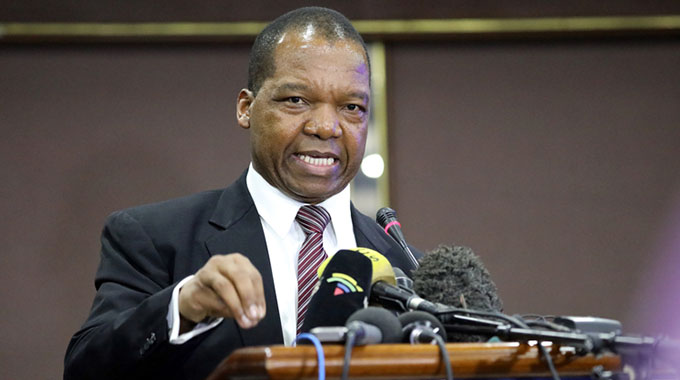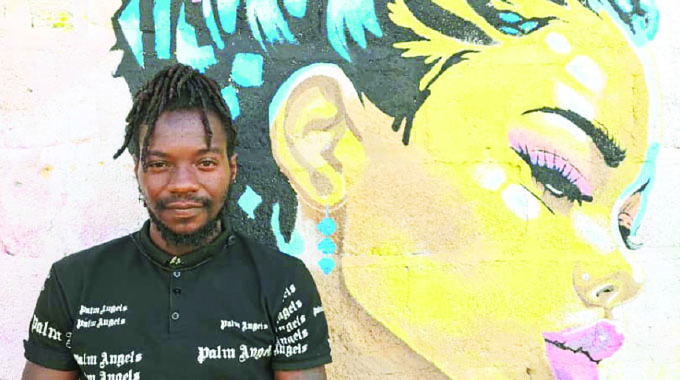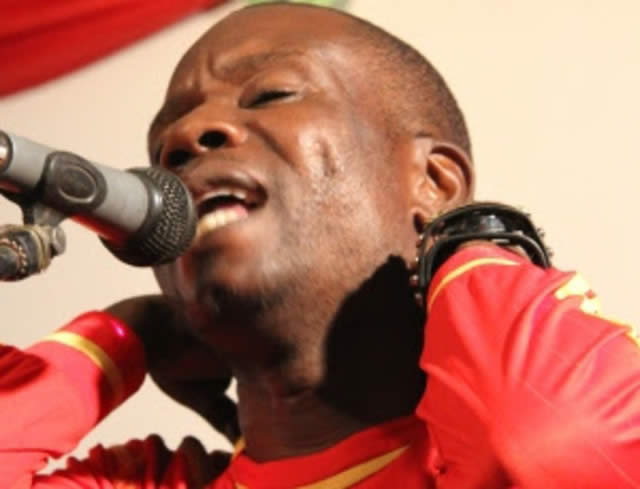Dorothy Masuka: Go well Mama, go well!

Joyce Jenje Makwenda
Dorothy Masuka’s 65 year illustrious musical career came to an end on February 23, 2019, when she left this world. She played her role and fulfilled it with distinction and should go on to meet the creator with her head held high.
When Louis Mhlanga told me of the passing on of this great woman we both realised how this had marked the end of an era — an era that had seen a new black type of music — township jazz or Afro jazz! As painful as it is, we celebrate her life.
UMam’ Dorothy inspired, impacted and encouraged a lot of musicians and artistes. (She was popularly known as Auntie Dotty or Dot, Mama D, Mam’ Dorothy, Mama Dorothy, Gogo Dorothy), I will use all of them in this article!
When I was growing up she is one of the musicians that I looked up to and whom I wanted to meet, my parents used to talk so much about her.
Those who have followed Mama Dorothy’s life, you will remember that in the 60’s-70’s she was banned in Rhodesia and South Africa, because of her political activism which was embedded in her songs, and her music was not played on the radio. However, young people got to know about her through a number of channels.
In the late 80s or early 90s my big brother (standwa — beloved), Simangaliso Tutani who held my hand during the initial stages of my research into township music, called me and said “I would like us to go to Kambuzuma, at the Garden Party Motel, there is someone whom you have always wanted to meet.”
He wanted it to be a surprise, but after persuading him to tell me who was this person he told me that I was going to meet Mama Dorothy, I screamed with joy! I can visualise the day we went to meet my idol, uMama Dorothy.
When we got there, I could not believe that finally I was meeting the woman that I had always looked up to in music! Simangaliso Tutani introduced me and the rest is history.
I remember one day Mama Dorothy was going to be interviewed in the studio and I happened to be in the foyer and we were chatting and she introduced me to the people who were accompanying her and bragged about my research, like a mother would do.
The day she passed on my sister Nomsa Mwamuka a prolific writer, the author of Miriam Makeba communicated with me and said “Nematambudziko Sisi, Aunt Dot always said you had the ‘richest’ archive on her life. What a blessing your extensive research.”
I was thinking some of my interviews I did with her could perhaps find a good home with JJMCA (Joyce Jenje Makwenda Collection Archives) one day?” I was very touched. “But one other person whom I should commend for filming uMam’ Dorothy is Linnette Frewin, an amazing veteran filmmaker, who is a walking archive herself. We all wanted to document this amazing woman uMam’ Dorothy because of the work she did and what she has passed on to us, as a musician, activist, artist, teacher.
The last time I saw uMama and talked to her was when Sam Mataure, with the help of Munya Simango and Isabel Rutendo Dzvova organised her 80th birthday party in 2015, in September and I was one of the few who were invited, I think we were about 25 of us.
You are amazing Sam, you have this wonderful gift of celebrating people when they are still alive, many people would prefer to give eulogies instead! Such is human nature!
You did this for Oliver Mtukudzi (Samanyanga), Hugh Masekela (bra Hugh) and you also brought uMam’ Miriam Makeba with Daves Guzha and we did not realise that Mam’ Miriam had come to Zimbabwe to bid us farewell, although she had indicated that she was going to retire from music, actually she was going to retire from life, and she was preparing us. Mam’ Dorothy has gone to join her sister Mam’ Miriam and others.
Mam’ Dorothy’s 80th birthday party was facilitated by Dr Solomon Guramantunhu at his SG Villas, who has always supported the arts in many ways.
Some of those who were invited were Dr Gibson Mandishona who has been at the helm of jazz festivals since the 90’s, as chairman, he has also followed Dorothy Masuka musical journey since the 50’s, Fred Zindi who is a music critic and Oliver and Daisy Mutukudzi.
I was one of those who were asked to give a speech and after the speech Munya said “thank you aunt Joyce for the thesis”. I ended the speech with Khula uze ukhokhobe Mama and she said “angikakhokhobi”, Mama today I am saying Ulale ngoxolo Mama wethu, ulale ngokuthula ntombe ndala. It is painful, as I write this article I am realising that she is really gone!
Here is some of what I said in my speech and it is also published in my book “Women Musicians in Zimbabwe (2013) — A Struggle for Voice and Artistic Expression”.
Dorothy Masuka composed and recorded more than any artiste in the 1950s. She introduced new lyrics, new dressing, and new stage work.
Dorothy sang about shabeens, about fashion, about politics. Her lyrics reflected what was happening in the society in the 1950s.
She did not toe the line; her lyrics reflected her feelings and not what society wanted or expected to hear. She was not apologetic and did not want to play the “moral” woman that the society expected so that she could be allowed to use the public sphere without ridicule; she used the public space in any way without asking for “permission”.
Her free spirit shaped her musical style and she came up with a Dorothy Masuka beat/style which was, and is still very unique.
Her music sold in numbers, this could have been due to the fact that the society either bought the records out of curiosity or just to go along with her.
Dorothy brought in a new era and her carefree lyrics which resembled the way women in precolonial era who expressed themselves through music.
Dorothy Masuka did not allow anything to come between her voice and artistic expression. She also wrote songs for the late international township jazz musician — Miriam Makeba.
She challenged society’s perception of women who wore trousers, known as bogarts those days.
Another song which was controversial was “Pata Pata” (touch touch) this song raised society’s eyebrows as the dance was about touching one’s breasts and the behind; it was sexual. She was bringing sexuality to the fore which was considered un-Christian and uncivilized.
Mama D as she is also affectionately known revolutionised the way music was viewed in the 1950’s and up until now she remains one of the few women with honest lyrics in her songs.
In 1959, Daniel Madzimbamuto who led a group called Cultural Syndicate organised the first All Africa Music Festival, were Dorothy Masuka made her first press conference to a packed audience of dignitaries, business executives and diplomats.
The African News (Weekend Edition) December 13, 1959, reported that: Dorothy Masuka, the Rhodesian Star arrived in Salisbury this morning to take part in the Music Festival. She was introduced to reporters at a press conference called by Dan Madzimbamuto this morning, the first press conference ever called by an African in Harare. SAPA and African Press were represented. At the festival Dorothy Masuka played to a wide spectrum of people. Her audience included diplomatic and consular corps, the business community, educationists and the general public.
In South Africa Dorothy Masuka became popular as a jazz singer in Sophiatown, where she staged shows with the likes of Dolly Rathebe, Miriam Makeba and maestro Kippie Moeketsi. The Harlem Swingsters teamed up with Masuka and toured Cape Town on a series of musical shows lasting seven months.
Masuka’s popular tune was; “Hamba Nontsokolo”, which has since become an all-time household hit. The tune was recorded in South Africa by Trutone and became a popular single during the 50s. Other numbers were “Imali Yami Iphelele Eshabhini”, “Unolishwa” and “Isono Sami”, which were recorded by Troubador in South Africa.
Back in Zimbabwe, Dorothy Masuka performed with major musical groups of the 50s; the Cool Four, Golden Rhythm Crooners, City Quads, De Black Evening Follies, August Musarurwa, as well as the Gay Gaeties. She taught the latter group on the finer points of vocal production and stage performance.
Masuka’s musical shows were filled to capacity, as her music style and rich vocals were unique. Parade Magazine at one time remarked on one of her shows in Sakubva, Mutare: “half of the residential houses must have been empty”, as all roads led to the Sakubva Beit Hall. Several groups aspired to stage shows jointly with Dorothy, whose jazz/blues offering became so excelling.
She also participated in a few multi-racial music events, which were fairly successful, an endorsement that music can be a vehicle of racial integration.
Masuka travelled to Britain where she appeared on BBC shows, as well as at the West End London Clubs.
Dorothy featured in the “Ready Steady Go Show”, produced by UK’s Independent Television. It was a crowning moment for her, since only big names appeared on this show: Beatles, Rolling Stones, Dotty West: those were the times. One of Dorothy Masuka’s spectacular moments was when she sang at the General Election Campaign, at a fully packed London Wembley Stadium.
The event was momentous; it was aired on live television. Dorothy gave shows in Malawi (Nyasaland) in 1961, on behalf of the Malawi Congress Party. Eventually she became popular throughout Malawi, where she later formed a trio with two local girls; Helen Kapesi and Matilda Bandawe.
In middle life Dorothy Masuka spent some time in Zambia, where she often teamed up with Jacob Mhungu and the Broadway Quartet (led by Simangaliso Tutani). She also found time to record her own songs.
When Zimbabwe attained Independence in 1980, Dorothy returned to Zimbabwe from Zambia, still with a feeling that her musical dream had not been fulfilled. She decided to settle in Johannesburg, to revive her musical career. For her, this is where it all began. Oftentimes she sang with old friends: Patience Africa, Abigail Kubeka, Letta Mbuli, Dolly Rathebe and Miriam Makeba.
In the mid 80s she featured with Letta Mbuli and Caiphus Semenya on a tour called BUWA. Most of her songs have been recorded by Gallo, which offered her some royalties.
Masuka also held shows in Botswana with the Jazz Impacto, led by Zimbabwean Paul Lunga.
She visited Zimbabwe to participate in Jazz Festivals and in celebrated galas.
Mama D was once married to Dusty King (Freddie Gotora), a one-time Zimbabwean star footballer of the 50s. One of Mama Dorothy’s wish was that someday Rufaro Stadium be named after her former husband, (Dusty King) Freddie Gotora.
She was based in South Africa and has been currently doing well, singing and performing in concerts, popular clubs and festivals, her last gig that I saw — this was on television was when she performed at the funeral of Mam’ Winnie Mandela.
Sam Mataure who saw Mama Dorothy a few months ago had this to say, “The last time I saw Aunty Dot, was a few months ago some months after she had fallen ill. We visited her with Steve Dyer. I just thanked her for the opportunity to play drums on her album. I didn’t think we would lose her. May Her Soul Rest In Peace.”
Mam’ Dorothy, hamba kahle! Go well Mam’ Dorothy! Ulale noxolo Gogo, rest in peace Grandmother!
(Some of the information in this story came from the “Zimbabwe Township Music Book (2005) and Women Musicians in Zimbabwe (2013)” by Joyce Jenje Makwenda©.
Joyce Jenje-Makwenda is a researcher, archivist, author, producer and freelance journalist. She can be contacted on: [email protected] [email protected]. zw







Comments